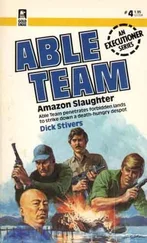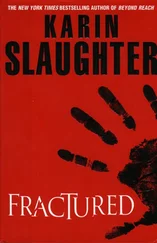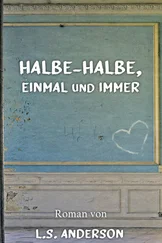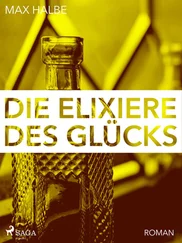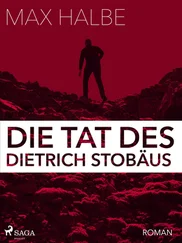But the horror was not yet over at Halbe. Erika Menze from Märkisch Buchholz, then seventeen, was one of the refugees who tried to get through Halbe that day:
On 29 April there was nothing to remind us that, according to the calendar, this was a Sunday. We hardly thought at all. Climb up on the truck, down from the truck, take cover. One was just moving and acting automatically. Sometimes I thought to myself: ‘Don’t get wounded.’ There were already many wounded soldiers sitting and lying on the trucks. We reached just short of Halbe on this terrible Sunday morning of 29 April.
Again and again we had to take cover in the shallow ditches on the edge of the woods. The mud splashed so! Then things quietened down a bit. We looked up and saw clearly where we were. Off to the right the tall buildings of the post office and railway station. On the left the wood, where the Poliklinik stands today. In front of us the road that leads to Märkisch Buchholz on the left and goes straight ahead across the railway lines into the village.
I don’t know by what miracle we had remained unscathed until then. I don’t know now how I got across the railway lines at Halbe station. What I saw was horrible. The tanks rolled down Lindenstrasse covered all over with wounded soldiers. One fell off and the next tank rolled right over him, squashing him flat, so that the next tank rolled through a pool of blood. There was nothing of this soldier left. It happened in seconds.
I had to take care where I lay. The pavement near the Drassdo Bakery was covered in corpses, all German soldiers. Many more dead were lying alongside the houses, stacked up at an angle, leaving no cobblestone or piece of pavement uncovered. I had to pass over these dead soldiers, their heads yellow, grey, crushed flat, their hands yellow, grey or greyish-black, only the wedding rings glimmering gold or silver. A horrific scene.
At last I reached the home of the cobbler Luban. This far and no further. It must have been about noon, for some women had cooked some cabbage soup and we each got a large cupful. But that was the end of our longed-for respite.
Two Russians came to the cellar entrance and explained to the inhabitants that the Germans were attacking again and that we all had to leave the cellar. I grabbed my food bag and we left the cellar one after the other. I saw the Russian soldiers for the first time at the house door.
We all ran across the yard and behind through the garden into the open field, where there was a stack of logs several metres long. I lay down there on my back, not moving an inch. Then all hell broke loose.
There was firing over us, behind us and beside us, all kinds of small arms fire, the bigger stuff not so close. One got used to the sound of firing and explosions from the bigger weapons.
But what came next was not possible to make out. Heavy weapons were roaring and Stalin-Organs were mentioned. Heavy and light machine guns were rattling and tracer bullets whistled over us. ‘Don’t move! They’re firing at anything that moves’, a woman near me cried out. This lasted from early afternoon until dusk. The barrage must have lasted six hours. The woman next to me was wounded twice, her brother-in-law too. They comforted each other as best as they could.
After hours of bombardment, it became quieter. During the bombardment we had seen many shot-up ruins collapse.
Night began to fall. A Russian took a large glass of what looked like sugar or semolina from a handcart standing not far from us. I thought, so he comes and helps himself and we have to stay still. But he only looked very shyly towards us. He needed it as much as we did. As we looked back there was no horizon to be seen. Everything was covered in smoke. We all tried to stand up, then noticed how cold we had become.
German soldiers came and hurried us up. The Russians had been driven off and we should get away quickly towards the autobahn. But going on again with them was nonsense, carrying on in the hell of the pocket. We had long been encircled, as we discovered months later.
We reached the woodland track on which soldiers were emerging from Halbe. I went along under cover of the tanks hand in hand with a soldier, who gave me a lump of sugar, saying that it would calm me.
Meanwhile it had become pitch dark. There was the glow of a fire here and there, so that we could make out the tanks. Before long we came under fire again. The soldier showed me a place, somewhere between uneven ground and a heap of brushwood. The fire-fight intensified. I despaired and began crying for the first time in days. Suddenly the soldiers started running with a loud ‘Hurrah!’ The Russians had to think they were outnumbered. Later came the many wounded, suffering, groaning, calling for the medical orderlies. We were completely incapable of helping them.
The wood came to an end in front of us. Over there in the darkness the soldiers thought was the autobahn. We could hear tanks moving, but no one knew whether they were German or Russian.
So the column wheeled left. You couldn’t see your hand in front of your face. We could hear some soldiers placing two wounded on a motorcycle combination, but it was no longer serviceable. The stream of humanity would stop from time to time, then move on again. [28] Helmut Jurisch in correspondence with the author.
Another officer cadet from the same regiment as Rudi Lindner reported on events in Halbe that day:
On 29 April 1945 at about midday (the day of the abortive break-out attempt of several units west of us) three four-wheeled scout cars and about the same number of Volkswagen jeeps suddenly appeared before our positions [the sparse screen formed by the 1st Battalion, 86th SS Volunteer Grenadier Regiment Schill ] from a westerly direction. Their commander was a young second lieutenant, a Hitler Youth leader type. At first we took them for Seydlitz-Troops and wanted them to disarm immediately, but they identified themselves as a reconnaissance unit of the Friedrich Ludwig Jahn Division of 12th Army coming from the area west of Teupitz. Their unit had become badly disorientated in the last few days and had contact neither to the west nor to the east. By the sounds of battle coming from the east, there must still be strong elements of our own troops around. Their commander wanted to know for sure and so had sent out this reconnaissance unit. Any stragglers were to be brought back with them. The officer had radio contact, so we sent him on to the XI SS Panzer Corps battlegroup, but what happened then remains unknown. During a short cigarette break we learned something about the other divisions [of 12th Army] for the first time. This encounter took place in the woods three kilometres north-east of Halbe, north of the track to the Klein Hammer forest warden’s lodge on the Dahme Flood Canal.
We only hoped that our armoured vehicles would keep on driving west and that at last we would not have to march any more. We came to another road, crossed a railway line and were able to read the name ‘Halbe’ on a road sign. We were making a gentle turn with our tank into the village, when we were suddenly fired on from all sides. Within a few minutes our first three tanks had been blown up. The crews squeezed themselves out of the narrow hatches completely wrapped in flames, like human torches. Everything happened quickly. Flares shot into the air and rifle fire whipped through the dark. Our remaining tanks turned round and as rapidly as it had started everything became quiet. Then suddenly someone shouted: ‘Don’t shoot, they’re our comrades.’
Everyone wanted to move on and pressed into the village street, but heavy rifle whipped into our ranks from the buildings as we formed a perfect target in front of the bright background of burning tanks. Only the trees on the street provided minimum cover from one side. Then shots from Russian anti-tank guns and tanks started coming from the western end of the village street.
Читать дальше

